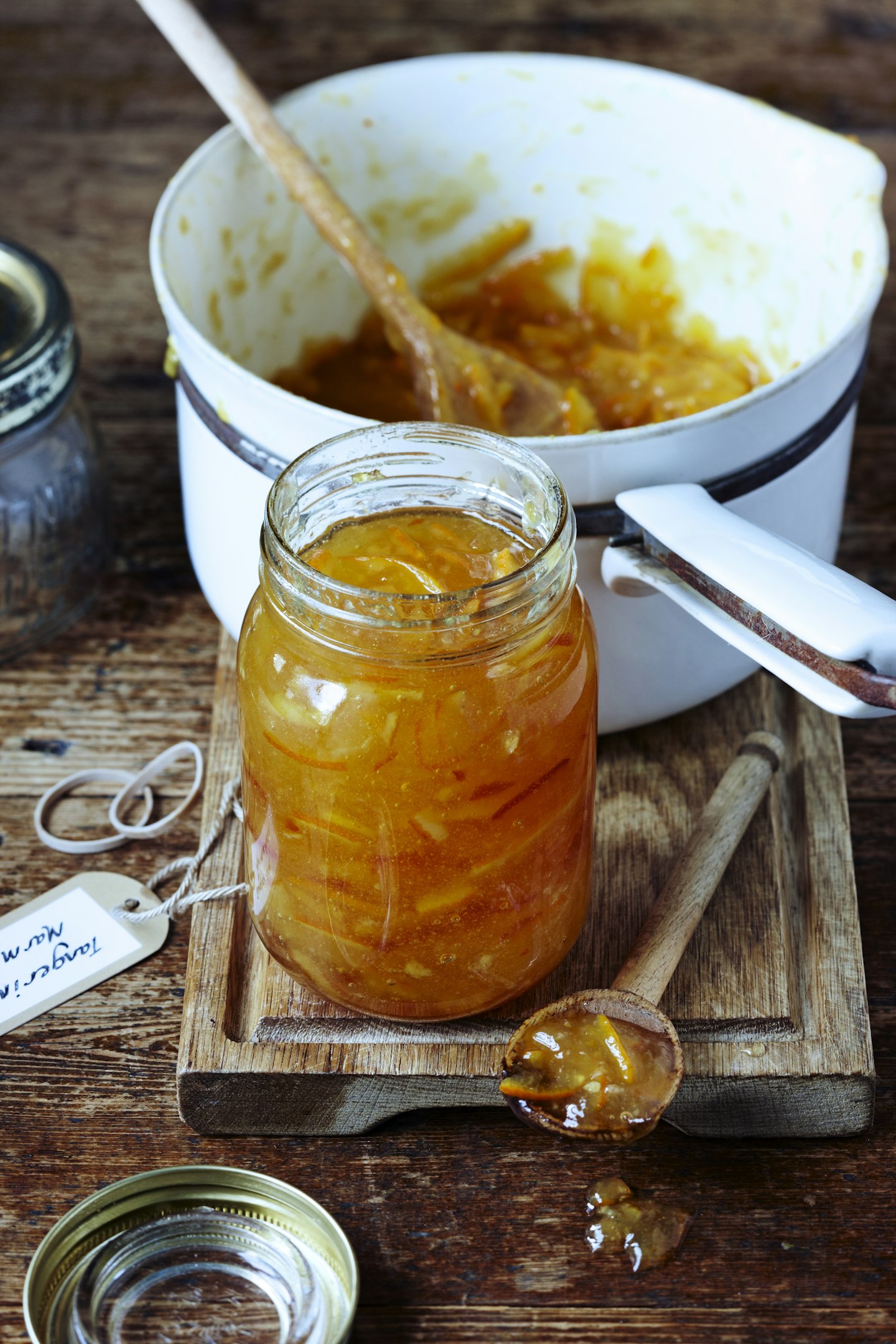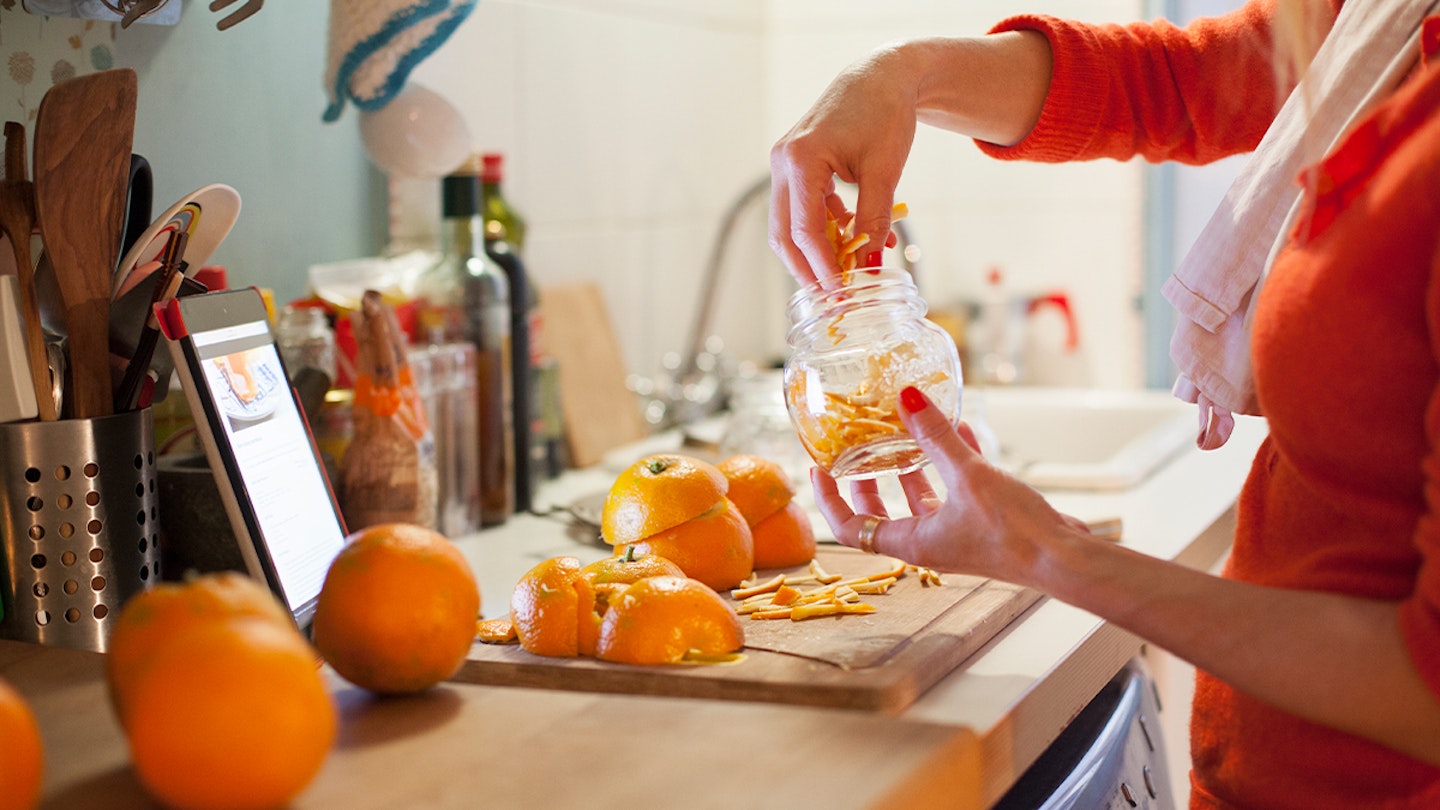Marmalade is one of those quintessential British classics. The fruit preserve is usually made from citrus fruits such as oranges, lemons, and grapefruit. Marmalade is a popular condiment in British breakfasts and is usually spread on toast or baked goods. If it is good enough for Paddington Bear, then it’s good enough for us.
Here is how to make marmalade and other helpful tips and tricks.
Classic orange marmalade recipe
Preparation time: 10 mins
Cook time: 3 hours
Servings : 96 servings (2 tbsp per serving)
Ingredients
-
4 large seedless oranges scrubbed clean
-
2 lemons
-
8 cups water
-
8 cups granulated sugar
Instructions
-
First, cut washed oranges and lemons in half crosswise, then into very thin half-moon slices. Discard any seeds. Place the sliced fruit along with their juices into a stainless steel pot.
-
Add water and bring the mixture to a boil, stirring often. Remove from the heat and stir in the sugar until it dissolves. Cover and let stand overnight at room temperature.
-
The next day, bring the mixture back to a boil. Reduce the heat to low and simmer uncovered for 2 hours. Turn heat up to medium and boil gently, stirring often, for another 30 minutes.
-
Skim off any foam that forms on the top. Cook the marmalade until it reaches 220 degrees (you must hit this temperature for the natural pectin to gel with the sugar).
-
If you want to be doubly sure the marmalade is ready, place a small amount on a plate and refrigerate it until it's cool but not cold. If it's firm–-neither runny nor hard–- it's ready. It will be a golden orange colour. If the marmalade is runny, continue cooking it; if it's hard, just add a bit more water.
-
Pour the marmalade into clean hot mason jars; wipe the rims thoroughly with a clean damp paper towel, and seal with the lids. Chill in the refrigerator. It may take 24-48 hours for the natural pectin to set up properly.

Notes
To store the marmalade for longer, use hot water or a steam canner to properly seal the lids, Otherwise, refrigerate and use within the month. Or, freeze for up to 3 months.
To learn how to properly sterilise your jars see our article on how to make jam.
Step-by-step guide on how to make any marmalade.
-
First, rinse your citrus fruit and remove any wax on the skin.
-
Then with a sharp knife, cut the fruit in half, removing the seeds, and very segment the fruit.
-
Boil the citrus in water until soft. Then turn off the heat and add the sugar
-
Let the pot cool out of the fridge overnight to soften up the fruit more.
-
The next day, boil the sugar and fruit mix and then simmer for another couple of hours, stirring every so often.
-
After allowing it to simmer, turn the heat up a bit so the marmalade can reach 220 degrees Celsius to ensure that the sugar and pectin gel. If the temperature goes much beyond 220 degrees, the marmalade will burn.
Watch: Tutorial on how to make orange marmalade
If you prefer to follow video instructions here is a tutorial on how to make orange marmalade.
Does marmalade need pectin?
Pectin is a natural gelling substance that comes from many fruits. It is mostly found in the pips, cores and skin of the fruit.
Since most marmalade recipes use the whole orange, pith and skin there should be enough natural pectin for the marmalade to set properly.
What is the difference between jam and marmalade?
The main difference between marmalade and jam is that marmalade is made with citrus fruits and uses the entire fruit, with the rind and the skin.
Jam is made from whole or cut up pieces of fruit, usually berries with sugar and sometimes pectin. Jelly on the other hand is made from only fruit juice and sugar.
